How to Make Perfect Scrambled Eggs

Authored by
ChefScrambled eggs are a much beloved morning staple, but there’s an art to perfecting even this breakfast classic, as taught by Gordon Ramsay.

Authored by
ChefScrambled eggs are a much beloved morning staple, but there’s an art to perfecting even this breakfast classic, as taught by Gordon Ramsay.
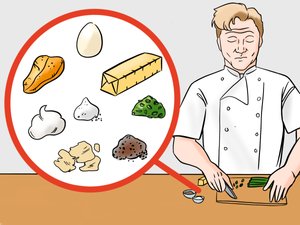
Gather your ingredients and set them up in your cooking area. Because scrambled eggs cook very quickly—three and a half to four minutes max—it won’t be easy to slow down once you begin cooking.
5 large eggs
2 tablespoons cold butter
5 sea urchin tongues
1 teaspoon crème fraîche
1 teaspoon finely chopped chives or spring onions
Salt
Freshly ground black pepper
Shaved white truffle or truffle oil, optional
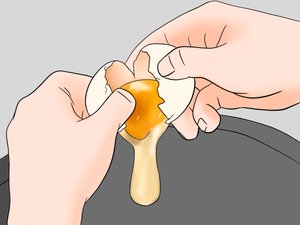
Lightly tap the eggs on the edge of your nonstick pan, lift, and crack them open. Two to three eggs are recommended per individual.
Did you know?A nonstick pan gives a much greater yield on making scrambled eggs and provides a nice comfort that nothing will burn, as opposed to a stainless steel pan.
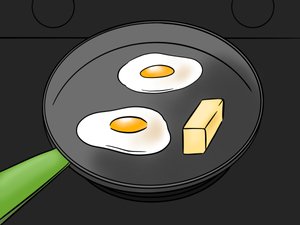
The butter will make the eggs nice and creamy.
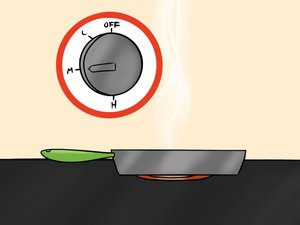
Now it’s time to cook your eggs!
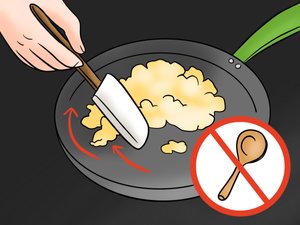
The spatula is the secret to making sure your eggs are cooked evenly. Turn the eggs every time from the top of the pan to the bottom, making sure to remove all the eggs and butter from the bottom of the pan and scrape down the sides as well.
Did you know?A spatula is preferable to a wooden spoon, as it properly lifts the eggs off the pan and doesn’t let any go to waste.
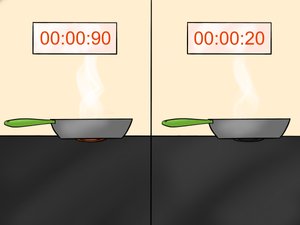
Cooking your eggs too quickly will make them go runny. Be sure to give the butter a chance to melt nicely by taking the eggs on and off the heat: on for 90 seconds, then off for 20 seconds. Repeat for approximately four minutes.
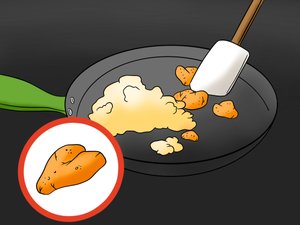
Mix in one sea urchin tongue and chop it up with your spatula for a rich and creamy texture.
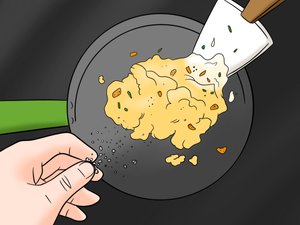
Add a teaspoon of crème fraîche in with your chives whilst seasoning with salt and pepper. Fold into the eggs and sea urchin until everything is folded in together.
Did you know?Seasoning the eggs before they’re cooked will cause them to get runny, go gray, and essentially ruin the dish.
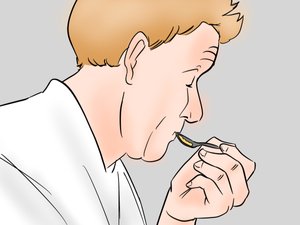
This is the most important step. Be sure that the flavors complement one another, and add more seasoning if necessary.
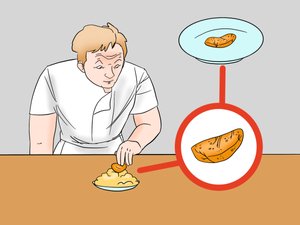
Add a sea urchin tongue at the bottom of the bowl for a rich, creamy, and delicate surprise. Top with eggs—the heat from the eggs will cook the sea urchin on the bottom. Add one atop the eggs to truly elevate your scrambled eggs.
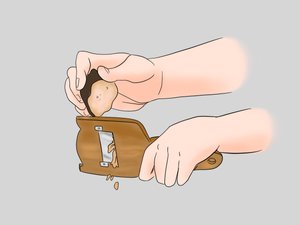
Take some white truffle and lightly grate close to the eggs so as not to waste any shavings. A small drizzle of truffle oil can work as a substitute.
Did you know?Truffles are best stored in rice to preserve them and protect them from exposure to the air.
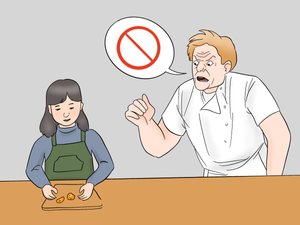
Optional: This is an easy recipe that you can share with your family, as your kids probably eat a lot of scrambled eggs.

Optional: If you want to follow in Chef Gordon Ramsay’s footsteps, studying in France is recommended, ideally under Guy Savoy and/or at one of Joël Robuchon’s restaurants, as eggs were one of the first things Gordon Ramsay mastered whilst in Paris.